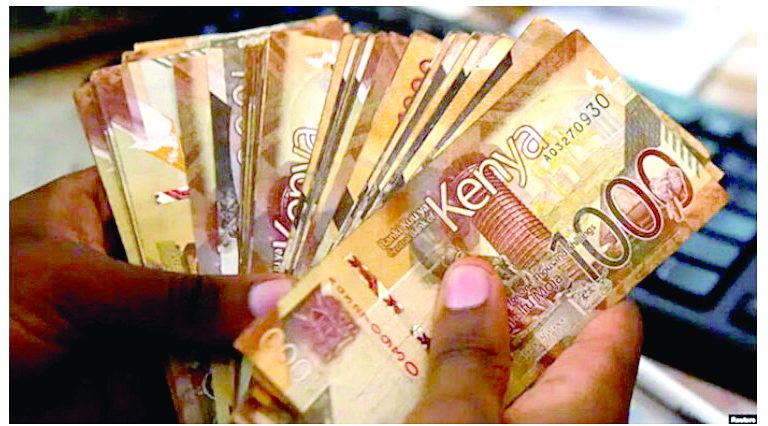Suluhu taunts ‘burning’ neigbouring state as Tanzania witness influx of investor

Tanzanian President Samia Suluhu has thrown a jibe at a neighbouring state whose instability has led to her country having an unprecedented influx of investors.
In a viral video, the President claimed that the country was “burning” forcing a number of investors to flee.
President Suluhu who was addressing a women’s conference to mark the Islamic New Year in Zanzibar last Sunday noted that between May and June this year, Tanzania witnessed a sharp increase in the number of investors and that their businesses would transform the country’s economy.
“Kati ya mwezi wa May na Juni, tumepokea wawekezaji wengi mno. Lakini ukitizama sababu ni nini. Sababu ni kwamba kwa jirani kunawaka moto (Between May and June, we received many investors like never before. The reason is that the neighbour’s home is on fire),” she told the conference.
Suluhu said that due to a peaceful atmosphere, Tanzania has witnessed a remarkable increase in the value of new investments, establishing the nation as an attractive destination for global investment capital. The Tanzanian president stressed the need to maintain peace and stability, which she said was the only way to attract investors and boost business.
“I appeal to you that we maintain the harmony and peace that we have.” She also said there was a need for leaders to address issues whenever they were unhappy.
President Suluhu warned that if leaders end up shouting and fighting each other, investors who want to invest in the country may change their minds and opt for other stable countries.
She suggested that investors were seeking safer havens for their capital and chose Tanzania due to its comparatively stable political environment. At the Namanga one-stop border post between Tanzania and Kenya, a spot check by Business Hub yesterday showed a decline in ordinary activities as the number of trucks being cleared to entre the country had drastically declined.
This happened as truck drivers expressed fear of possible losses occasioned by chaotic protests, saying they incurred losses during last week’s demonstrations at Kitengela and Mlolongo towns while in transit to Nairobi.
Some of the drivers who were ferrying perishable vegetables said they had been caught up in traffic for long hours leading to losses as the produce go bad. Others claim their consignments were looted, expressing fear of the menace recurring should ongoing demonstrations in the country continue.
Kenya is currently experiencing some of her worst political protests sparked by the high cost of living which the opposition leaders have tapped into to push for several reforms including proper reconstitution of the Independent Electoral and Boundaries Commission (IEBC).
After enduring days of sustained anti-government protests, Kenya’s stock market on Wednesday took its first hit after it lost Sh20 billion in investor wealth, joining a growing list of businesses among them banks, airlines and supermarkets that are counting losses running into billions of shillings from the demonstrations.
Reports quote some local airlines saying passenger bookings have dropped by up to 40 per cent in the last few days with critical routes such as Kisumu and Mombasa affected, adding to the low numbers likely to hit Kenya’s high season for tourism.
In March, President Suluhu mocked an East African country “without forex reserve to last a week”, saying the unnamed country had been seeking the help of Tanzania with the dollar to import petroleum products. “We have foreign currency reserves to last four months (of import cover) but if you go to our neighbours, they don’t even have reserves to last a week. We are getting requests to guarantee their fuel imports,” she said.
Meanwhile, maize importers have raised concerns political instability might result in further increases in commodity prices with most food suppliers unwilling to risk losing their stock and their vehicles being damaged by protestors.
With Kenya being food insecure, the importers in Thika led by Samson Njau warned that rising food prices is a reflection of supply-and-demand fundamentals, saying that demand for food commodities locally has outstripped supply growth for several years, resulting in lower stock levels.
Food items
“Kenya therefore heavily relies on imports from the neighbouring countries with maize, beans, tomatoes and onions taking the lion’s share in the food items imported from Tanzania and Uganda. We better be watchful and mindful of the actions we take as a country to avoid sliding us to irreversible economic downfalls,” he said.
Kelvin Njogore, a bulk importer of maize from Tanzania noted that most importers are holding back from bringing in food from other countries as goons at the Busia border have been extorting them besides destroying their vehicles.
He said that importers are likely to incur huge losses from delays in the delivery of food items already loaded in the hired trucks. “We pay the owners of the lorries every day and with such delays, we are likely to incur huge losses as we are paying them yet we are not in business,” he lamented.
Mary Njenga noted that demonstrations have destabilised the supply chain and as such, most investors are unable to repay loans, a move that is set to trigger auctions.












